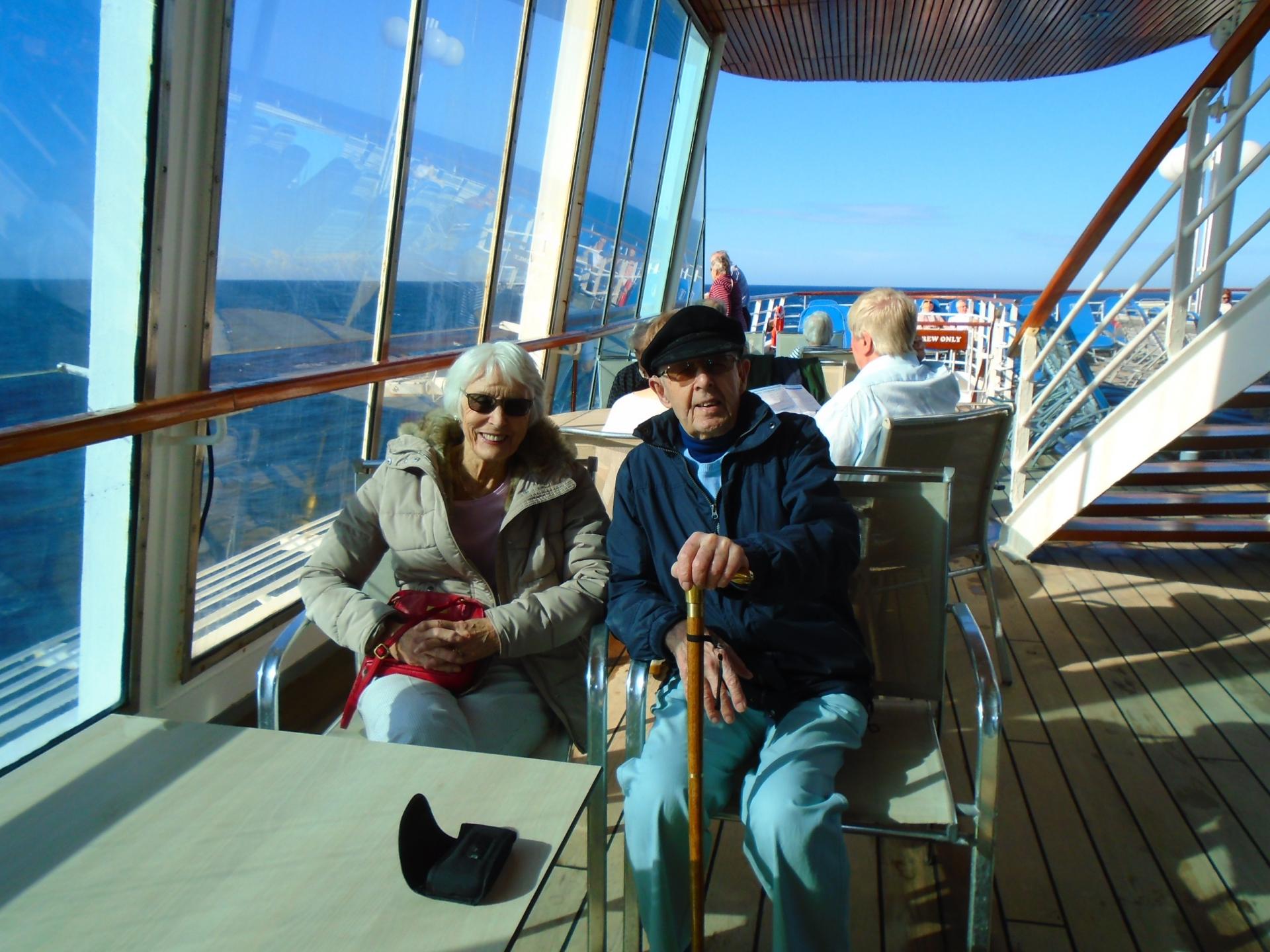John
When John was diagnosed with a low-grade lymphoma, he expected the experience to be similar to when he was diagnosed and treated for DLBCL - but that didn't turn out to be the case.

The doctor called me in to give me the result of my biopsy, ‘It’s lymphoma, a type of cancer'.’
I knew about cancer of course. But I had never heard of lymphoma. When he gave me the news I didn’t feel panic, I didn’t feel afraid and strangely I didn’t feel ill.
What I did feel was fury. Anger. And a rising acceptance that this was the battle of my life. But also a determination that I was going to win it.
I had worked for forty years as a journalist in Fleet Street, and my wife Anna and I had retired and bought a small village house in the Alicante region of Spain to enjoy the sun.
In 2007, I had noticed a line of lumps to the left side of my groin. After a while they disappeared. But a few months later another lot of lumps appeared on the right side of my groin. We were in England, so I went to see my GP who sent me for a biopsy. That was when I was diagnosed with diffuse large B-cell lymphoma (DLBCL). We didn’t get back to Spain for another seven months.
I was to have six sessions of R-CHOP chemotherapy. I sat in the day ward for most of the day while the drugs were given intravenously. I was assigned a specialist nurse and given telephone numbers; I was told I must call at any time if I had any serious concerns.
I waited for the unpleasant side effects. My hair started to fall out in clumps which irritated me so I took some scissors and cut off the lot.
Chemotherapy sessions were due to take place every three weeks. But before the second one I was asked if I would like to take part in a study called R-CHOP 14. The number 14 meant that instead of a session every three weeks, I would switch to every two weeks in a study to find out how different people responded to the more intensive treatment.
I was pleased to be chosen because that would mean I could get the entire thing over more quickly.
And then things really started to get rough. Something happened to my feet. It felt as though I was walking on razor blades. It was agonising. On my next visit to the hospital I had to be pushed around in a wheelchair. Eventually I got my feet back.
I had six cycles of chemotherapy. Soon after my treated ended I received a letter telling me that the R-CHOP 14 study had shown there had been no difference in the response of people like me who took part and patients who had remained on the three week sessions. Although a little disappointing, I was glad to have been able to do my bit.
Over the next five years things seemed to be going well. My specialist suggested I be discharged and I couldn’t have been more happy.
Early in 2016, the shingles virus attacked my left eye and the rash manifested itself on the left side of my face. I have never known pain like it. I began to get other mysterious infections. One night I was on my way to the bathroom when I fell and couldn’t get up. My legs simply wouldn’t support me. It turned out I had pneumonia and, while I was being treated in hospital, tests that included more CT and PET-CT scans were carried out.
The lymphoma was back. In March 2016 the lymphoma returned in the form of a low-grade version.
So it was a return to the clinic. I needed to start chemotherapy again. There was ritixumab one day, which took all day hooked up to a drip. The following day was for bendamustine, which took only one hour. This was done every month.
I expected everything to happen as it had done before on the chemotherapy regime: that my hair would fall out, that my feet would be attacked, that I would feel generally dreadful. But I didn’t.
Instead, my hair was just thinner and I didn’t feel ill. However, my tongue and teeth turned black and I had the more painful mouth sores. I was treated immediately with mouth washes, ointments and tablets. My oncologist stopped the bendamustine treatment because it was causing too many problems for me.
It has now been six months since my last chemotherapy and two things have happened. First, I have been able to get travel insurance, secondly the oncologist doesn’t want to see me again for four months.
So, at the age of 84, I went off on a cruise with my wife Anna.
Note about John's story:
Very rarely, people diagnosed with high-grade lymphoma, such as DLBCL, can relapse in the future with a low-grade lymphoma. It is not certain why this happens but tiny, undetectable levels of low-grade lymphoma may have been present at the initial diagnosis, which later caused a relapse.
June 2018
